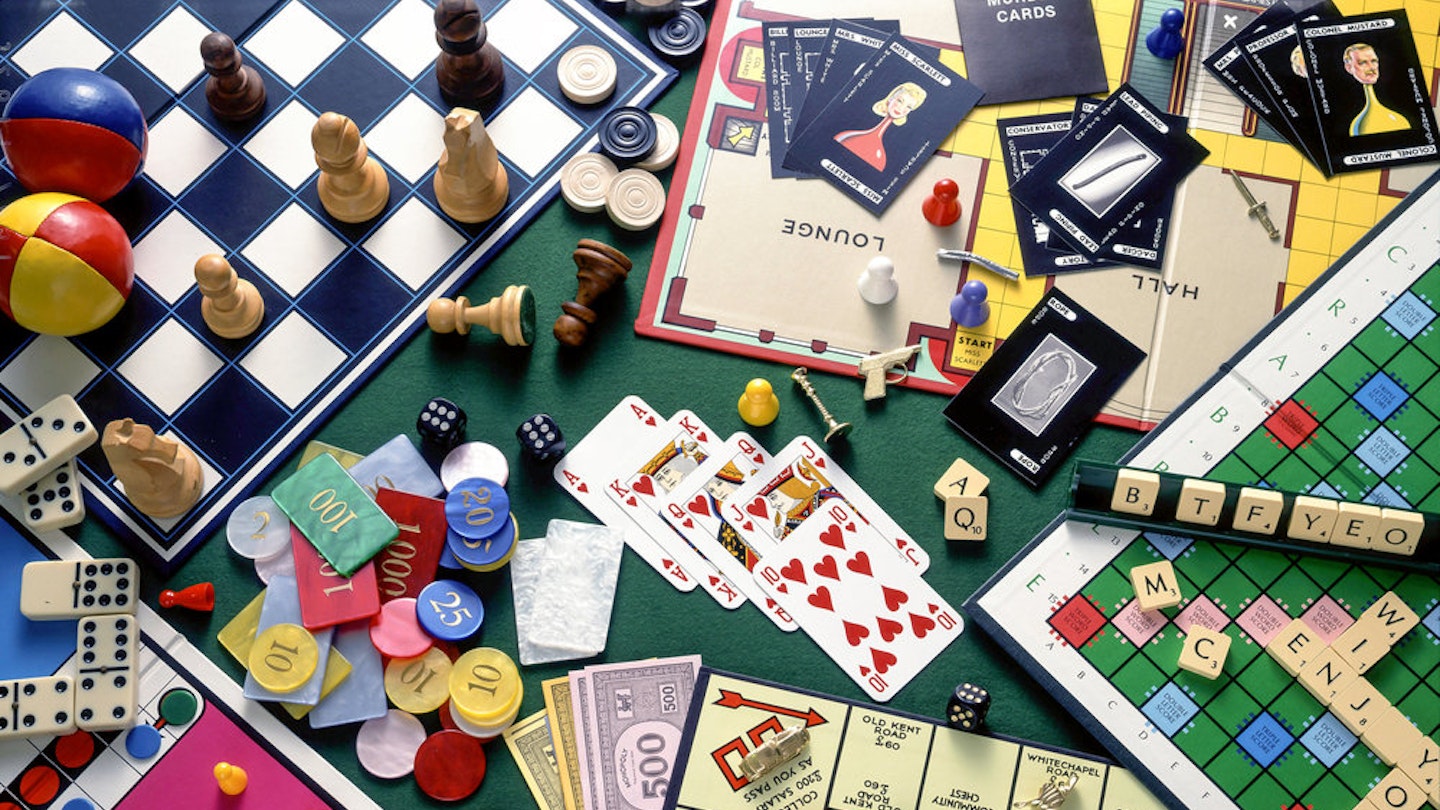Remember those rainy days when there was simply nothing else to do but get out a board game and do battle? Before laptops, iPads and mobile phones, it was board games that we turned to for entertainment.
They were the saviour of countless a soggy British holiday and post-Christmas lull; it may have been the season of peace and goodwill but that didn’t always extend to harmony on the board-game front! Whether it was landing on Mayfair with a hotel on it in Monopoly or being ganged up on by the family during a game of Risk, things could get heated.
Read next: 1970s toys for the best playtime nostalgia
Now market research group NPD has reported a 20 per cent annual rise in the sales of board games, which industry analysts, Fung Global Retail and Technology, put down to a growing demand for ‘unplugged family time’.
.jpeg?auto=format&w=1440&q=80)
But it’s not just sales that are booming. Each year the UK Games Expo, Britain’s biggest table-top gaming event, is attracting more and more visitors. Meanwhile, the trend for board-game cafés, where you can enjoy a drink and a natter over a game, is currently sweeping the nation. So with all this newfound excitement for board games, we wanted to look back at some of our childhood favourites...
You can’t beat a classic
Most of us had at least one board game that was so well-loved the edges turned tatty and the spine of the board was in danger of splitting altogether.
Monopoly was obviously one such classic, first invented in 1904 by Lizzie Magie who called it The Landlord’s Game to teach people about the unfairness of economics and private land ownership. The Parker Brothers later got their hands on it and made it the commercial success it is today (giving Lizzie just $500 and no royalties).
The joy of thumbing through stacks of fake notes and buying a posh house in Mayfair (oh what a fantasy!) never did quite wear off.
Scrabble, meanwhile, got us scratching our heads for the latest big words we’d learned in school (and the naughty ones we’d sneak in when playing with friends). Originally called Lexiko, the game was created by draftsman Alfred Butts who’d just lost his job in the stock crash of 1929. He pored over newspapers to see how frequently words were used, to work out how many of each letter he should include in the game. Today, around 30,000 people start a game of Scrabble every hour.
Trivial Pursuit came about when two word lovers sat down to play Scrabble only to realise there were pieces missing. And so they dreamed up a new game that went on to sell more than 100 million copies.
Talking of missing bits of board games, it was always a miracle if we dug out Mousetrap to find all the pieces intact. Created in 1963, we loved racing round the track to build up the cranks, buckets and wash tubs – that is until some swindler caught our mouse under the net and we stomped off.
.jpeg?auto=format&w=1440&q=80)
Cluedo was another family favourite that required a mind like Miss Marple. Was it that hussy Miss Scarlet with a revolver in the library or mysterious Reverend Green with lead piping in the conservatory? The debate could last for hours!
But for something that would truly make our brains ache (and lasted at least a day) there was always Risk – a strategy game of diplomacy, conflict and conquest that set off a Third World War in many a sitting room.
Our generation games
The Sixties and Seventies gave rise to a whole new era of novelty board games. Blast Off first appeared on toy shop shelves in 1969, inspired by the adventures of Buzz Aldrin and Neil Armstrong and involved racing to reach outer planets of the solar system (that is if you could get through the 12-page rulebook).
Back on earth, a modern version of The Game of Life, adapted from an older game created in 1860, was sorting out our entire future for us, as we followed a journey from college to retirement.
.jpeg?auto=format&w=1440&q=80)
Read more on Yours.co.uk:
Similarly helpful was Careers where we fathomed out which job we wanted to do when we grew up. And if you were considering a job in the visual arts, Masterpiece was a must-play as you discerned art fakes from the genuine article.
This wasn’t to be confused with Mastermind, a code-breaking game for two invented in 1970, based on an earlier pencil and paper game called Bulls and Cows.
Or for something altogether different there was Haunted House, a 3D multi-roomed game that was a Seventies’ hit.
